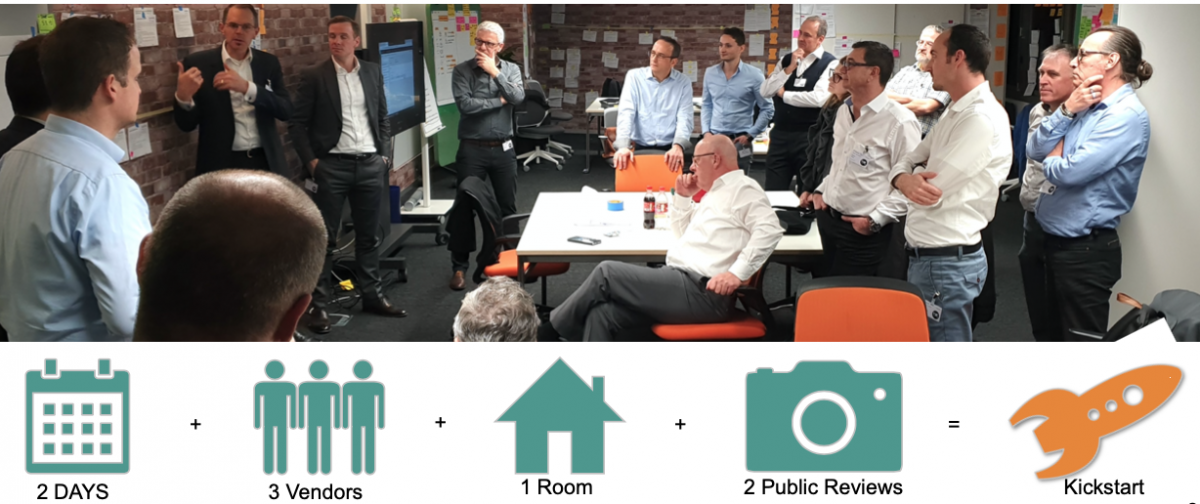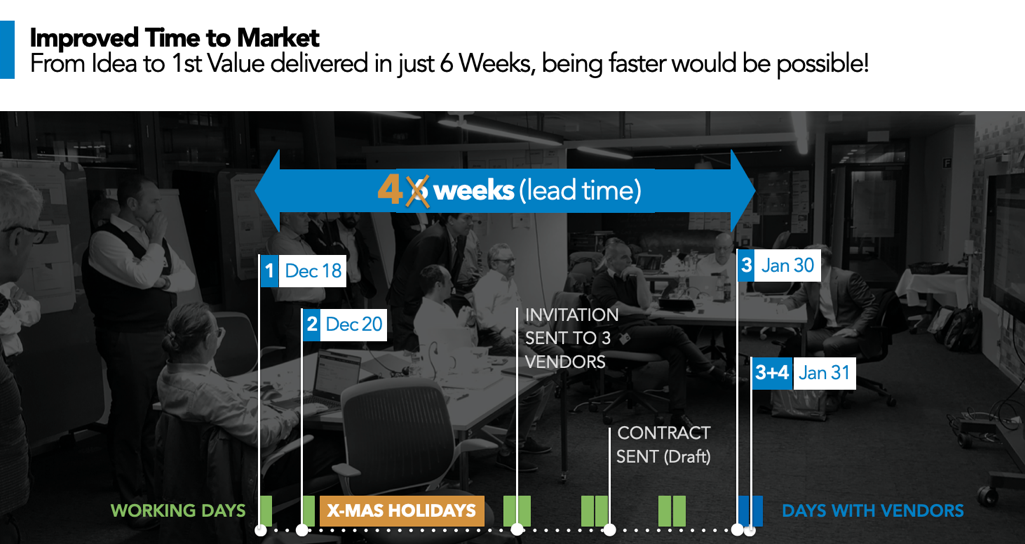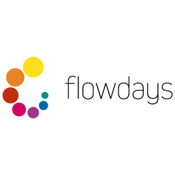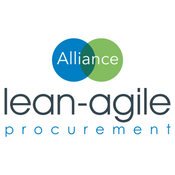Swiss Casinos: Sourcing of an ERP in Two days
Originally published by flowdays
The players
Swiss Casinos Group is the #1 Swiss gambling and casino company in the market, with 800,000 visits, 580 employees, an annual revenue of CHF 160 million. The company is still in the early stages of transitioning to business agility.
flowdays is an agile co-operative of senior agile coaches in Germany and Switzerland. flowdays supports businesses of all sizes, industries, and functions in their agile transition. flowdays’ goal is creating a sustainable, positive impact for their employees, partners, and customers.
The challenge
The gambling market has been disrupted lately, so the Swiss Casinos Group wanted to adapt their business model, and invest heavily in digitalization. In late 2018, the board approved the project “Shakira,” which introduced a new ERP software as the next step to a more digital company.
Their deadline of January 1, 2020 would not be possible with a traditional sourcing approach (RfI and RfP), so Swiss Casinos engaged Lean Agile Procurement, and they sourced an ERP in just 4 weeks – a new world record!
It’s the fourth project concerning an ERP Software I have been engaged in. But thanks to Lean-Agile Procurement, it’s the first time I am convinced before even starting that we will create a good and valuable product for the users - Stefan Meyer, Sponsor of Shakira & CFO Swiss Casinos / CEO Swiss Casinos Services AG
The approach
The applied approach Lean-Agile Procurement has 4 steps. Imagine you needed to source something super complex, like an ERP with further integrations into other systems, and changed business processes in just one day. You’d need to have all the players, decision makers, users, customers, even lawyers, all at the same table.
With the help of Lean-Agile Procurement, Swiss Casinos was able to co-create an agile contract with their three shortlisted vendors in the 2-day workshop. The team created working product increments at the end of each day, then presented them to various users like accounting, human resources, and procurement. But even before the workshop, there was much to do.

18/12/2019: Initialization
flowdays supported SwissCasinos with setting up a cross-functional agile product development team which was responsible for the sourcing, final delivery, and the solution. The leaders (such as the sponsors) were involved in the kick-off meeting to define the business objectives, compose the frame conditions, and empower the team.

19/12 - 29/01/2019: Preparation
The team ran through the 7-step sourcing process as usual, but as an agile team (the green bars represent the joint working days as a cross-functional team) using Scrum as an operating mode, and Lean-Agile Procurement as the approach. All questions and concerns were resolved immediately, with the customer’s needs in mind. Every week the team presented their current status to all interested parties.
As a result, the project achieved maximum internal alignment. Everybody knew the scenario first hand, for example, why we decided on a particular technical condition, the customer needs, the short list of priorities, and the draft of an agile contract was composed in conjunction with the lawyer.
30 - 31/01/2019: Big room event
The team conducted a 2-day workshop with the three shortlisted vendors in which they were expected to co-create their proposals with the team, and run a proof-of-concept in parallel. The condition was that the vendors show up with all the people that might do the job, and not just their sales crew. This way, we were able to test the collaboration, their expertise, and the new ERP. This all happened before we signed the contract, like speed-dating, before we get married.
The license model was the most complex component. So we decided to stop the workshop and ask the 3 competitors to co-create the optimal license model in the next 15 minutes, and they did! Having the 3 vendors in the same room gave us the advantage that any new risk or assumption could be shared and resolved together immediately. They could learn from each other and improve their proposals accordingly. This also led to great competition. One of our questions was, “What other ideas do you have to make our project even better?” and they came up with very innovative ideas!
Our goal was not only to get proposals by end of the workshop, but also to decide and sign the co-created contract right then and there. This allowed us to start on delivery immediately the next day. Have I mentioned that the negotiations took us just 20 minutes each? Because we only had one session in which to get it done everybody was prepared with the right team questions and data. The “negotiations” were more like honest conversations, such as, “What risks haven’t we talked about yet?” or, “Why is your price so much higher than the others, what do you see, that they don’t?”
The most impressive result nobody expected was that one vendor, recruited a specific person from a different vendor to join their delivery team. It was an outstanding expert, whose personality fit the team well. Within a half-hour, this deal was sorted out too.
Mind-shifts to success
To operate in such a collaborative way, players on both the buyer and supplier sides need to “unlearn” many of their current habits to make room for a new win-win mindset:
- The leadership team needs to empower a team of experts and trust them, even for the final decision.
- People in the cross-functional agile product delivery team must take ownership, not just for the sourcing, but also the delivery.
- The vendor side should be seen as team mates and treated like internals, and be given a voice.
- There must be trust and collaboration, even with competitors, to offer the best solution for the customer.
- We need to accept uncertainty and work around that with a more appropriate agile agreement and contract.
- Thinking must be customer centric, with the customer’s needs and priorities in mind.
Mind-blowing results
The success story of the Swiss Casinos Group is a leading example of how the force of true collaboration enables unknown possibilities in complex sourcing cases.
- 400% faster idea to first value delivered: The time from business case to proof-of-concept delivered including signed contract was 6 weeks instead of 6 months*.
- 50% less efforts: The efforts of the evaluation on the buyer side were decreased from 4.5FTE* to 2.1FTE, while the vendor invested just 2 days.
- 400% faster first info to decision: The final decision took 2 weeks instead of 2 to 3 months.*
- 1,000% faster decision to contract: The final decision, the signed contract, notifying vendors if they won or lost happened same day, instead of 2-3 months later.*
- 84% recommendation rate satisfaction: All stakeholders from the buyer and vendor side were satisfied with the “Lean Agile Procurement” tender process, even the ones that lost the bid.
*Avg. numbers from a similar sourcing case in same context applying a classic RfX process.
During the project, we observed other aspects and potentials:
- 80% more innovative potential for innovation: The vendors and the cross-functional team contributed ideas, inspiring the competitors and making the whole solution even better.
- 80% cheaper potential for savings: Focusing on business value from the vision to each customer’s need created focus. It was easier, faster, and cheaper by focusing, and not doing unnecessary things.
- 80-100% less risk potential for risk reduction: Constant collaboration and feedback from the cross-functional team led to transparency and alignment of the known risks and assumptions.
- 100% social integration: The cultural and human fit of internal and external team members was achieved very quickly through collaboration.
Conclusion
Start early, validate often
What counts for a business model, and more specifically for the customer’s needs, also counts for sourcing a complex case. Instead of wasting time on unimportant work, collaboration should start as early as possible, and with constant validation of the joint achievements stage by stage, and thus the partnership. Therefore, the Lean Procurement Canvas is the tool for managing your adaptive partner ecosystem, and it creates a win-win situation for all partners involved.
View the original case study:
Authors

flowdays
- Email:
- [email protected]
- Phone:
- +41(0)417106290
- Twitter:
- @flowdaysrocks
- Website:
- flowdays.net/en/home

Lean Agile Procurement Alliance
The Lean Agile Procurement (LAP) Alliance is a not-for-profit organisation of global agile experts, that currently disrupt procurement and supply. The LAP Alliance is also a Certification Body and offers in-person and online awareness and advanced certification workshops as well as guidance via coaching.
- Website:
- www.lean-agile-procurement.com
